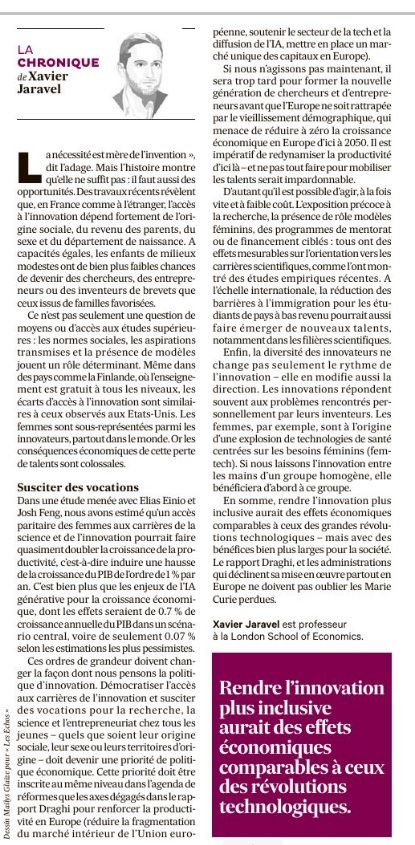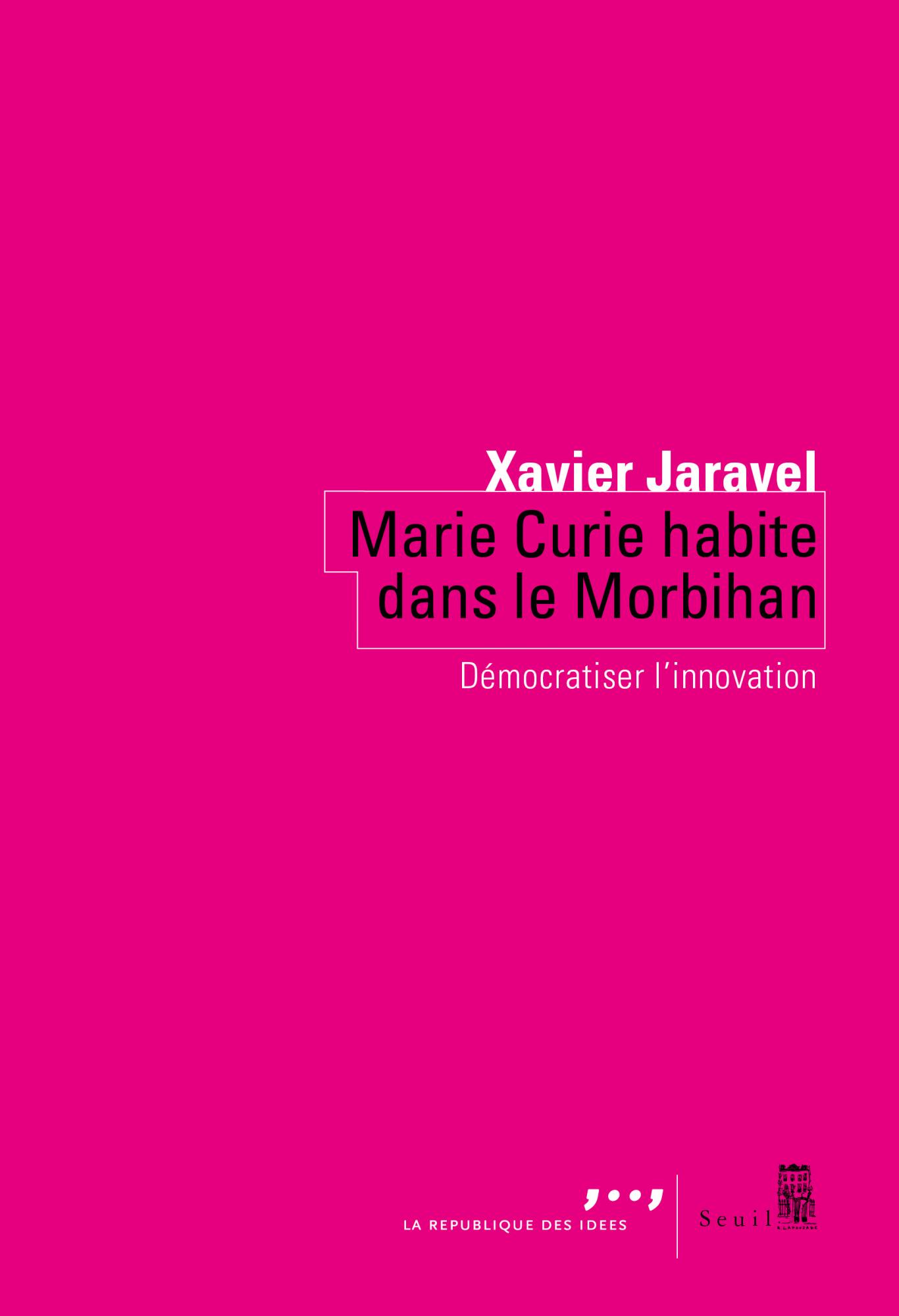Xavier Jaravel comes back in a column entitled “Let’s Not Forget the Lost Marie Curie(s)” for the newspaper Les Echos to one of his favorite topics: “Access to innovation depends heavily on social background, parental income, gender, and department of birth. With equal abilities, children from modest backgrounds have a much lower chance of becoming researchers, entrepreneurs, or inventors than those from privileged families.”
I say “one of his favorite topics” because I loved the short and magnificent essay he published in 2023: Marie Curie Lives in Morbihan – Democratizing Innovation.
For the (very) curious, you can delve deeper into the subject by reading two scientific articles:
– Social Push and the Direction of Innovation by the same author and by Elias Einiö and Josh Feng, March 2025.
– Invisible Geniuses: Could the Knowledge Frontier Advance Faster? by Ruchir Agarwal and Patrick Gaule, IMF Working Paper 18268, December 2018.
I was fortunate to be invited by the same IMF in January 2019 to analyze the sources of innovation. There, I discovered the similar concept of the Lost Einstein. A paper also co-authored by Xavier Jaravel and entitled Who Becomes an Inventor in America? The Importance of Exposure to Innovation provides a definition: There are many “lost Einsteins” – individuals who would have had highly impactful inventions had they been exposed to innovation in childhood – especially among women, minorities, and children from low-income families.
When I read analyses of the reasons for innovation failures, particularly in Europe, I see “rational and economic” explanations, such as overly strict regulations, uneven markets, inappropriate taxation, and inadequate investments. I hear fewer cultural or sociological reasons, which seem far more convincing to me. Xavier Jaravel helps highlight important and little-known elements. Thanks to him!


